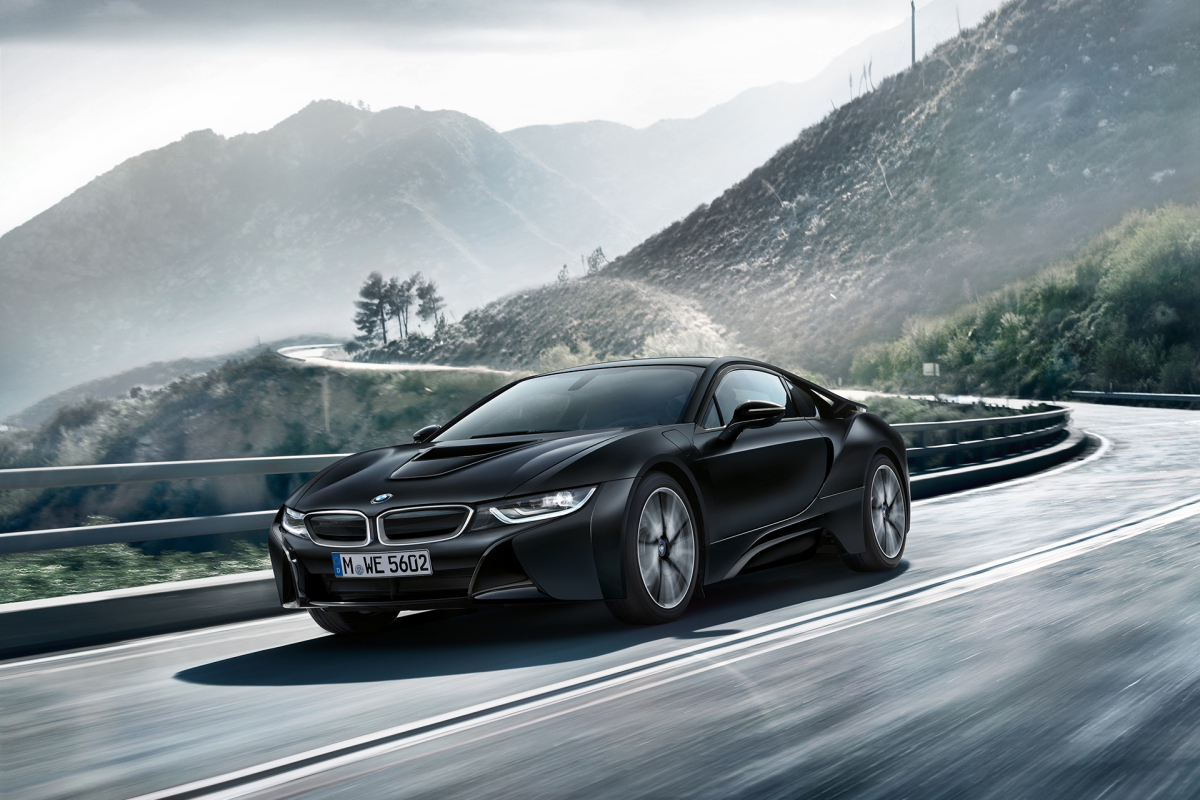
I’m sure we’ve all imagined a future where everyone drives electric cars.
None of us are naive enough to think that the day of the EV will never come, but today petrolheads here in the UK the whole discussion became a bit more real.
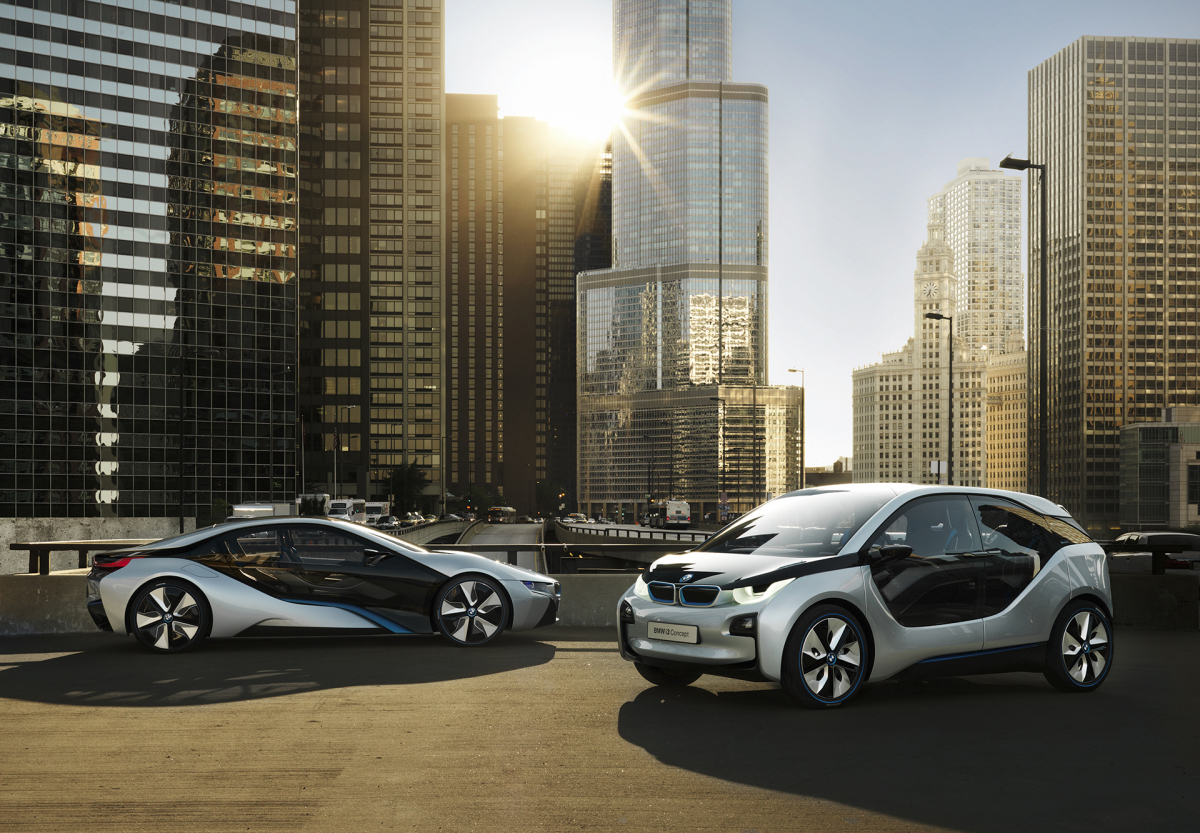
The UK government has just announced, as part of its policy to cut air pollution, that it’s putting forward a proposal to the High Court that the sale of all new petrol and diesel-powered cars will be banned by 2040. A quick-fire round of maths in my brain tells me that’s just 23 years away. Long before I reach retirement age I’ll no longer be able to buy a new car with a combustion engine. It seems awfully close now, doesn’t it?
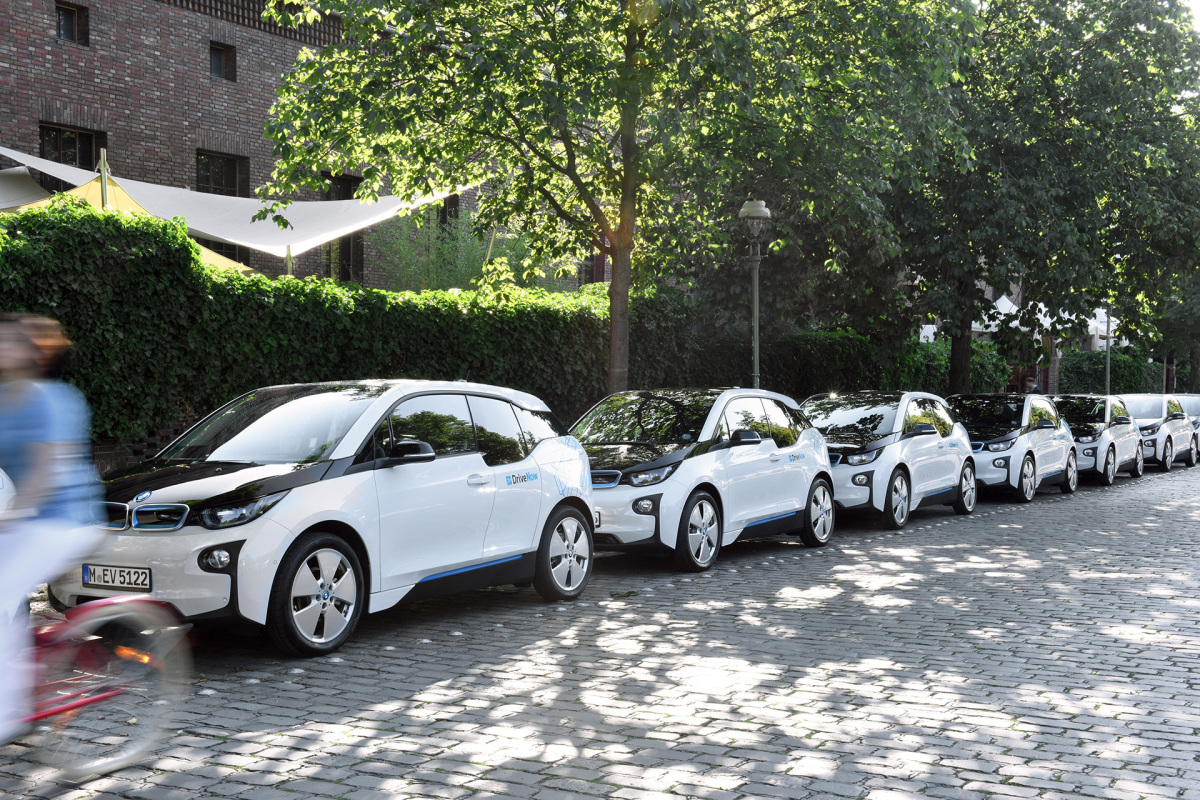
The UK aren’t the first to sign the execution order either. President Emmanuel Macron has already proposed that France will do the same by the same date, while Norway’s accelerated plans are to axe the petrol engine by 2025. Hold fire for more maths – eight years from now. Political pressure will ensure that more EU countries will follow in the coming months and years, mark my words.

Some countries will undoubtedly cope better than others. Forward-thinking nations, such as Japan, are already adapting their infrastructure to cope. The US will be an interesting battleground, as parts of the country, such as California, are already accustomed to EVs, while other states are far more likely to drag their heels to the change. In terms of logistics, adapting vast countries such as the US and Australia to cater for EVs is going to be a huge challenge.
How do you see the move to electric happening in your nation?
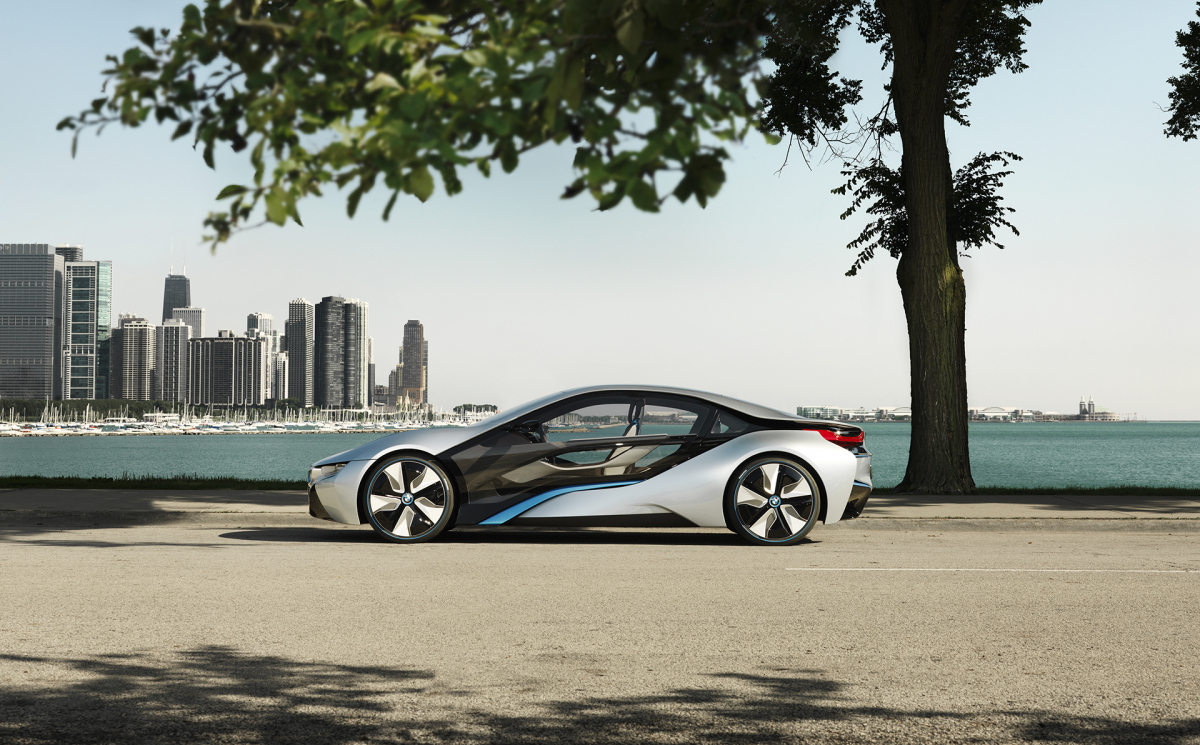
The reasoning behind the change is clear, and it is necessary. Both our planet and our collective health is in trouble, and the combustion engine, while some may argue isn’t the biggest culprit, definitely isn’t helping matters. We already have the technology in place to make this all a reality too – the generation of clean energy is advancing at an electric pace (thank you) – we just need someone to tell us that we have to let go of the apron strings.
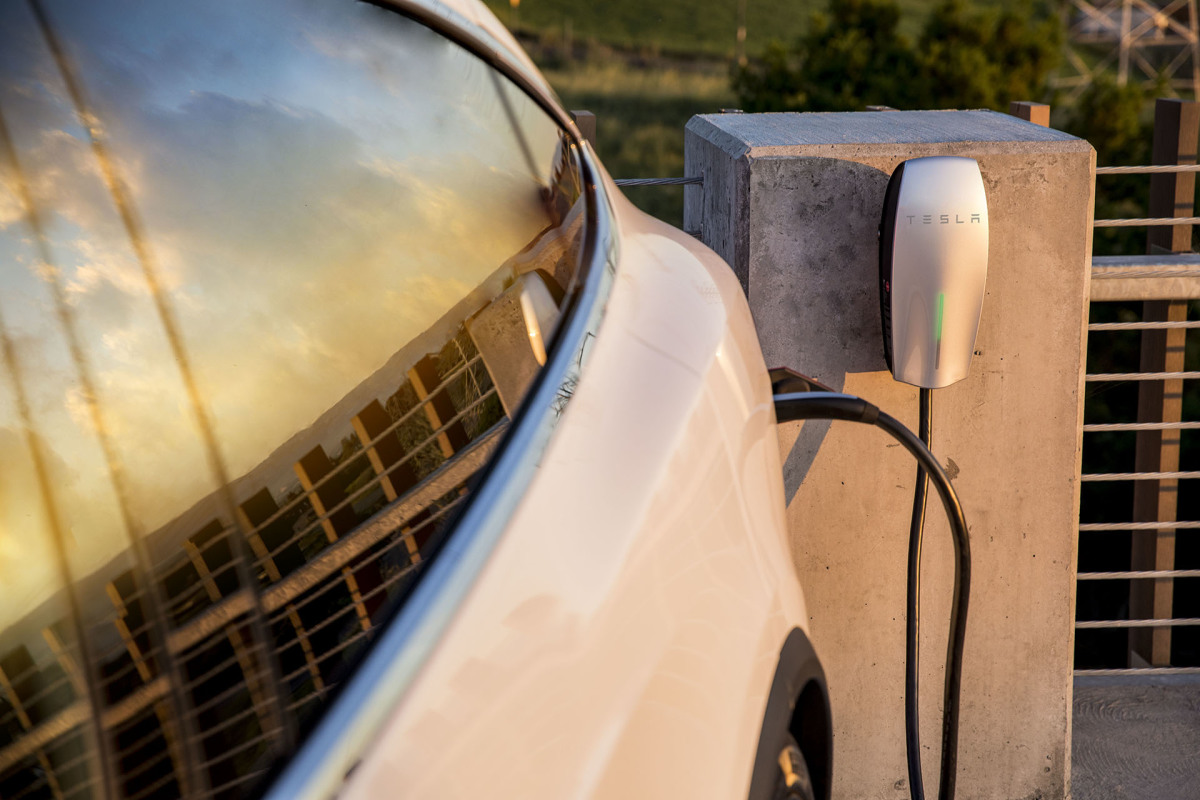
The biggest issue that lies ahead is adapting the infrastructure to suit this new method of powering our vehicles. In the 131 years since the internal combustion engine was first mated with the consumer vehicle the world around us has changed to make using a car a completely convenient practice. But it wasn’t always this way. I’m sure for the first generation of people to own and use a car it was an remarkably frustrating affair as you drove past countless places to feed and water your horse but nowhere to buy fuel.
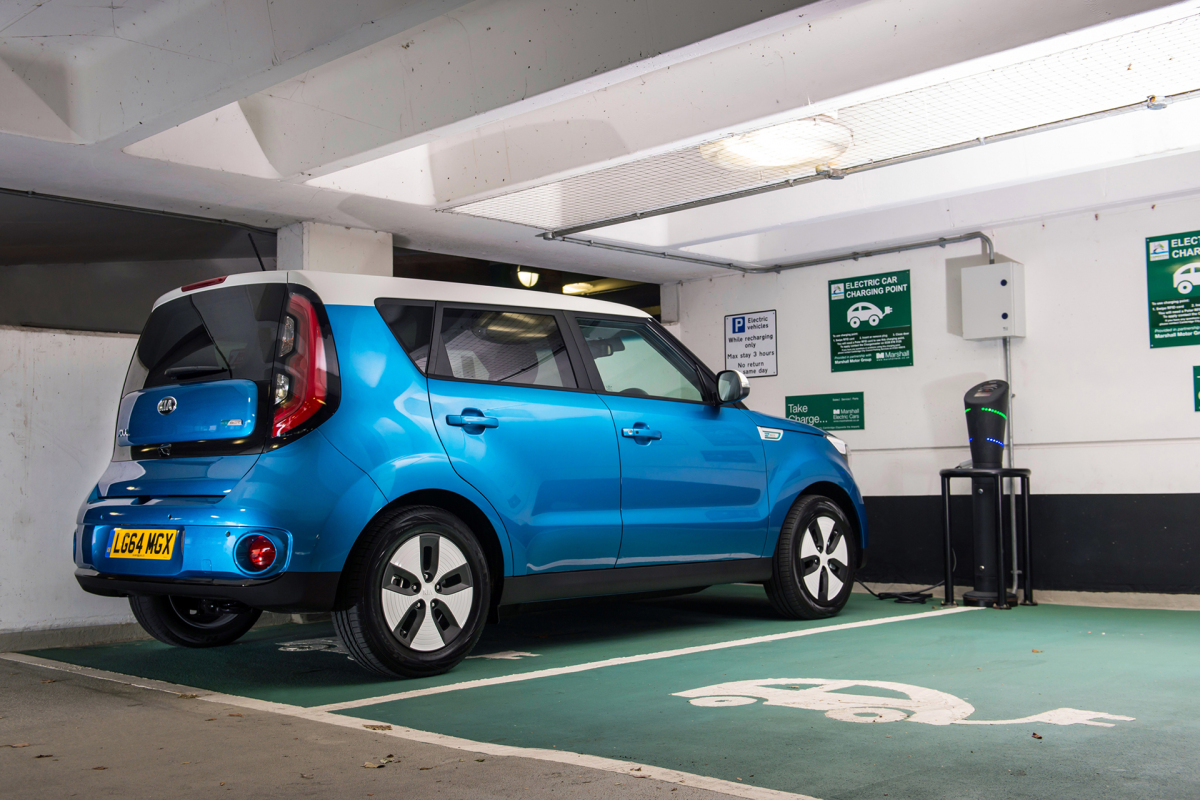
The difference this time is that we’ve got a head start on EVs. You can already charge your electric vehicle at almost every shopping centre and service station here in the UK. In forward-thinking US states such as California, running an EV is already part of everyday life for many people. Around a quarter of all cars sold in Norway are already electric. You may not have noticed, but we’re already part of the way there.
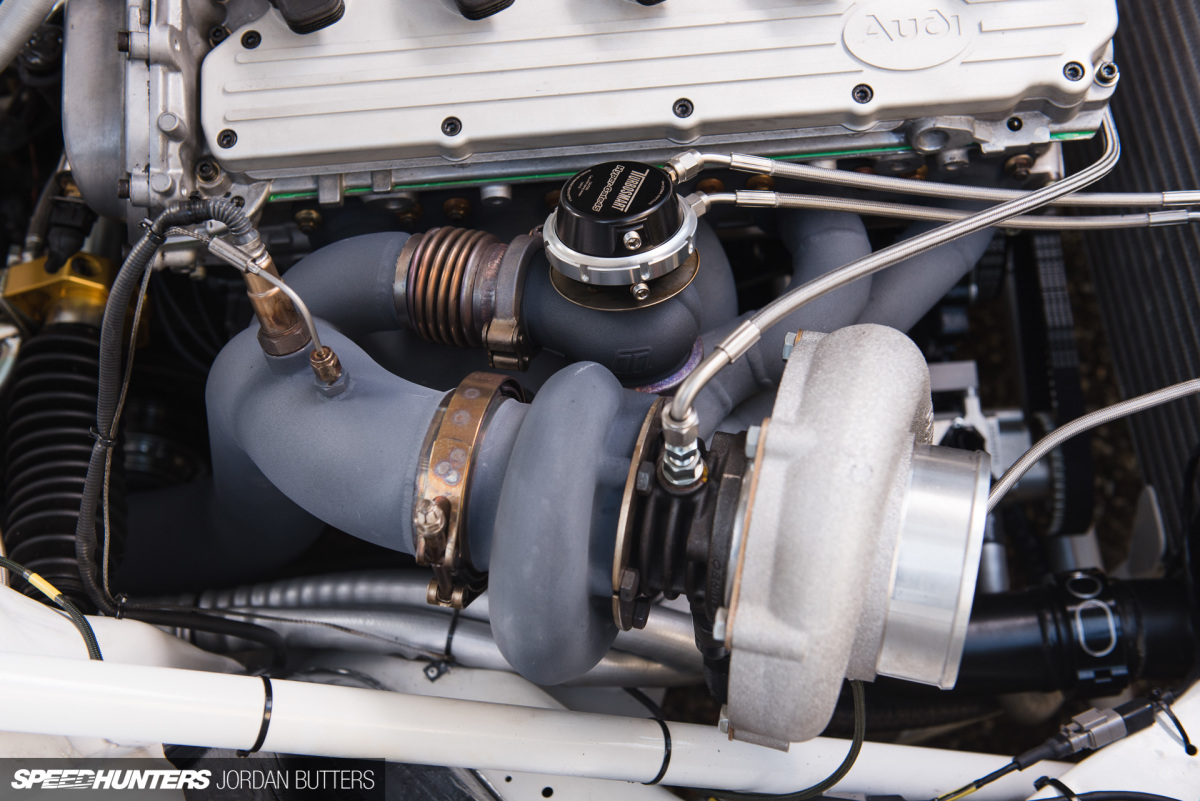
But what does this mean for the enthusiast, for car culture, and for the petrolhead? For a start, that very term in itself will become a long forgotten colloquialism within our lifetime. It’s a sad realisation, but at least we got to live it, right? Spare a thought for near-future generations of enthusiast who, not so far down the line, will never get to experience a naturally aspirated four-pot screamer, the pull of a turbo V6 or the deep, thundering growl of a V8.
These are all soon to become antiquated forms of propulsion.
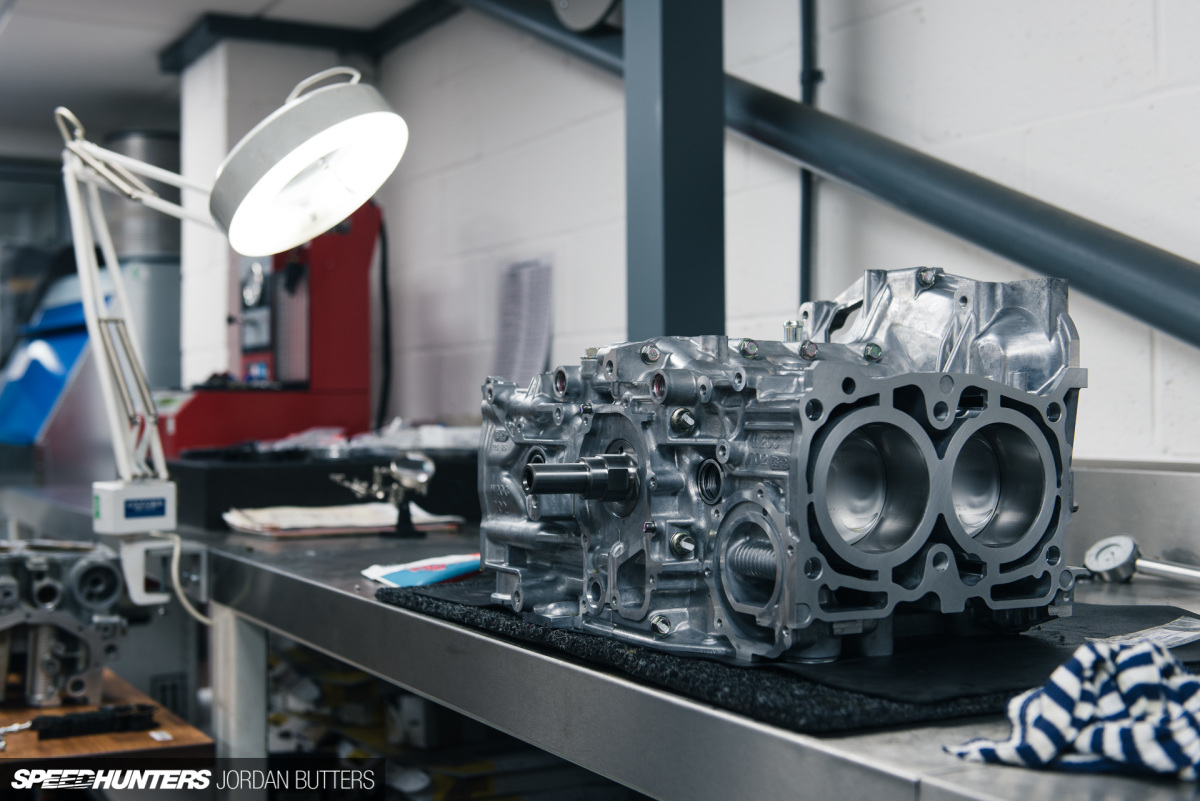
The engine has become such as huge part of our lives that it’s hard to imagine a world without it. The motoring industry will have to adapt, and do so quickly – mechanics, garages, tuning companies, the entire aftermarket industry. If I was an aspiring mechanic in this day and age I’d already be focusing on specialising in electric motors – forget oily rags and spark plugs – your future will be in computer interfaces and USB plugs.
The oil industry will be hit the hardest, and it’s the lifeline of the economy for so many nations. The dawn of the electric vehicle will cause untold problems for those who are currently accumulating unimaginable wealth trading oil. They’ll have to adapt, or die.
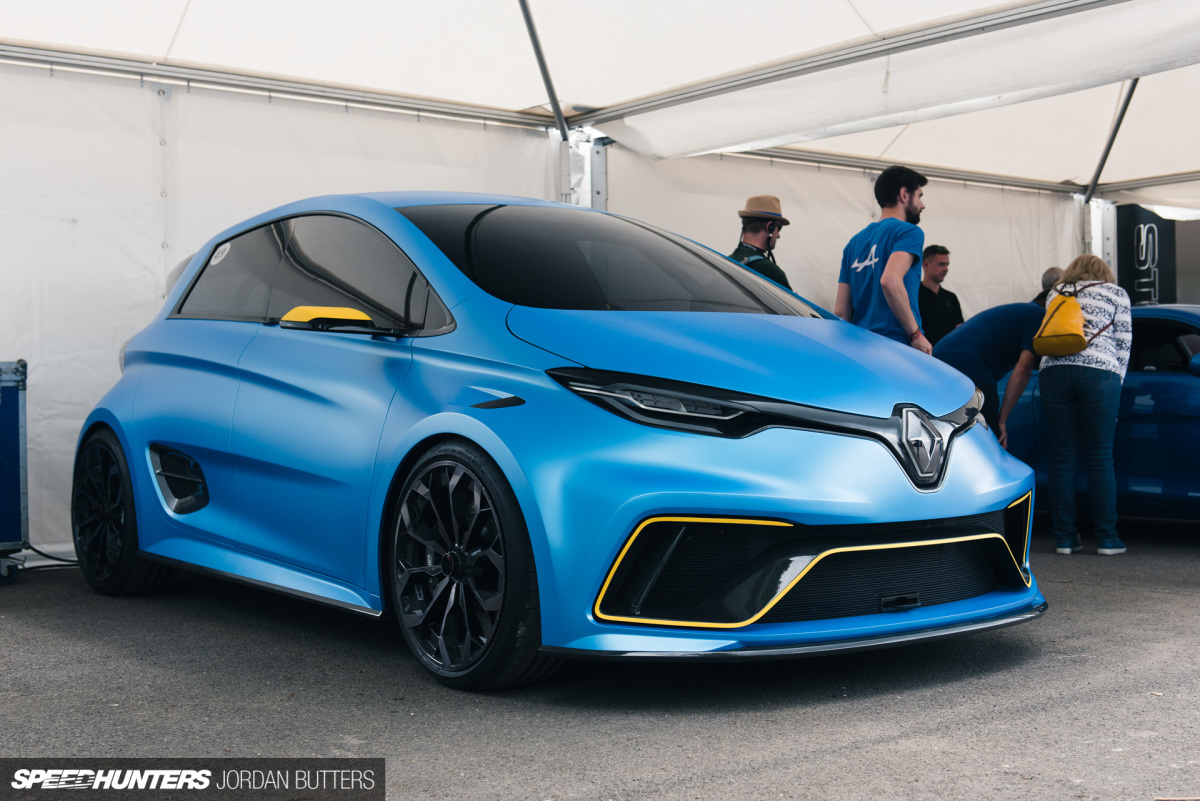
Despite these cloudy realisations, I don’t mean to come across as negative. I actually think we’re going to be OK.

Electric cars are actually good now. They’re often slick, they’re advanced. They can be very, very fast.
Casting aside all visceral emotions towards the internal combustion engine, the motoring industry will adapt and grow. Car culture will go on. Sure it’ll be different; quieter, cleaner, more sterile. We’ll be tuning engines with USB sticks and firmware flashes rather than turbos and fuelling, but the passion for cars amongst those who enjoy them will never die. We might not be called petrolheads, but we’ll still be here.
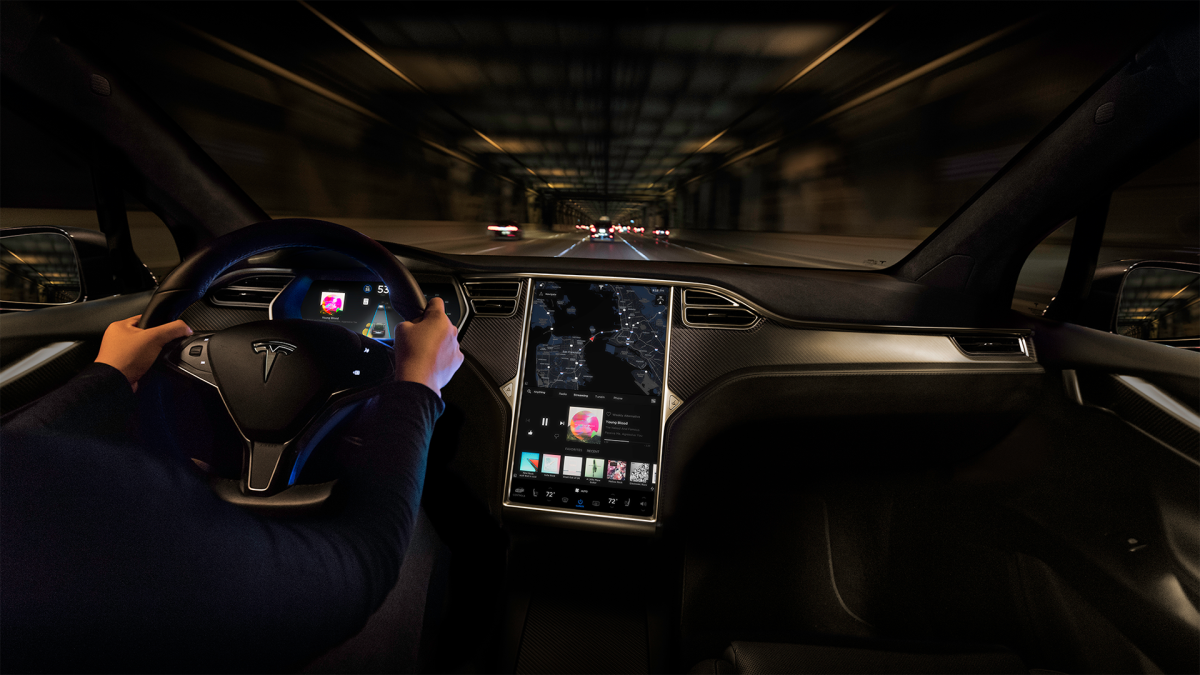
Personally, I’m excited by the future. Times change, technology changes and what was once the norm becomes forgotten. At the same time, my fondness for the internal combustion engine is irreplaceable, and I’m not quite ready to let go of this relationship just yet. We’ve come a long way, had a good ride and some great times.
The way I see it, we’ve got at least 23 years left to keep on enjoying all of the explosive dinosaur juice we can before it becomes an outdated and frowned upon practice. Use it wisely.
Jordan Butters
Instagram: jordanbutters
Facebook: Jordan Butters Photography
jordan@speedhunters.com




















Electric cars are good marketing spin with governments. Sure electric cars have their place, especially in cities and urban environments (and the one I have driven with all that torque on tap instantly was cool). In remote areas there will always be a place for combustion engines. I would contend that electric and combustion engines will always have a place together, even if side by side (as in "I need my combustion engine generator to charge my electric car/truck/motorsickle"). How good is it going to be seeing emergency service vehicles being all electric or what about military applications? At some point we'll prob see a limited back flip on the "no combustion engine" sentiment, especially when the "greens" get up set about battery disposal, embodied energy in manufacturing processes and other issues not yet properly thought out. For now, we will be hit time and again with "electric cars are it". And between now and 2040 there will be people working on better batteries and people working on clean fuels for combustion engines.
ICE's won't ever be gone. We're going to need them for things like emergency and remote applications where electricity doesn't provide enough range/instant use (charging takes a while, filling up a tank doesn't).
Remember the push for CNG about 20 years ago? What happened to that?
Oh right - CNG is cheap, clean, abundant and practical!
Is there a reason why bio-fuels haven't been developed more? Is it purely because more money can be made off EV? I see more Prius' around than I do E85 bowsers in my area.
Forget biofuels - go with natural gas.
Natural gas exists in such abundance, in so many places around the world - that if the world switched its entire transportation infrastructure over to it, we'd have so much fuel we could ditch fuel-efficiency regulations altogether.
After all, when you've got a functionally limitless supply of something, why try to conserve it?
Read up on the fraking for natural gas.. Peoples faucets are spitting flames from the chemicals used for fraking and f'n up the ground. But government contractors like Haliburton get a free pass from EPA prosecution and continue to mess up the environment for the future generations.
Does the gas burn cleaner than bio/regular fuel (I have no idea)? It's more about the environmental impacts rather than limited supply.
Yeah, it's significantly cleaner inherently than liquid petroleum - contaminants would need to be pretty light to stay suspended in a gas, as opposed to a liquid.
Less work to refine to acceptable levels of cleanliness, so it's cheaper that way as well.
Corn ethanol requires one to put in nearly as much energy for processing as one gets out (1.2-1.5 Btu out for every Btu in). It's a huge expenditure for minuscule gain. The biggest benefit is that you may be able to generate the energy to process the fuel by a cleaner means than burning fossil fuels, but then you might as well just put that energy straight into an electric car and skip the whole ethanol step.
Biofuels can be successful, but it's highly dependent on a country's soils, climate, and geography - see, for example, the prevalence of sugar cane ethanol in Brazil. In America, nobody uses E85 because it's energy-intensive to generate and no cleaner, cradle-to-grave, than dino juice. It's a godsend for performance enthusiasts, but from the standpoint of net carbon emissions and economics, it's not worth the infrastructural development cost. You might as well go straight to electric.
Which is a good segway into what I see as the biggest benefit of electric cars: an electric car doesn't care where it gets its energy from. You can drive an electric car from coal country to California and not ever know what made the energy that goes into your "tank". So as the power generation industry executes its decades-long phase-in of cleaner energy sources - nuclear, wind, hydro, solar, biofuels, etc - the automotive fleet will be ready to take advantage of it.
I'm in Australia, and I remember a few years ago the viability of sugar cane ethanol fuels being brought up by local politicians, but it never went anywhere. I'm guessing that was due to the costs involved.
I'm guessing it would have created a lot of jobs if they did pursue it though. And Australia does have a large sugar cane industry.
CSIRO
CSIRO had a weed growing on dams that regenerated in a few days which they were turning into ethanol.
Any reason why this didn't go any further?
I've just been trying to find the info. It was ABC's landline year ago. It was familiar name oil company like BP that was seeking to buy the rights/lic/patent or whatever. I really can't see oil giants rolling over to let electric in.
I would also think that with the millions of vehicles currently on the road, they wouldn't just stop petrol production. Not everyone will swap to EV's. They would need an alternative fuel, just like when leaded petrol was phased out in the early 90's.
My only hope is that some exciting sports cars from the EV makers are made.
-Alex
If ICE is so obsolete why do governments feel the need to ban it? Surely it would be naturally replaced by electric eventually.
save face with their voters. Gotta DO something, know what I mean?
Why don't all EVs have solar panel bodywork? I know you wouldn't be able to generate enough to keep driving, but out car is just parked in the street most of the time and only gets used at the weekend, and even then not every weekend. Would be nice for it to be charging, even just a trickle, for those 5/12 days.
Just a thought...
There are several factors why solar cell bodywork wouldn't work. Number one being cost. A good example you can look up is a the solar roof proposal from Tesla. They estimate their solar tiles to cost about $22 per square foot. If that number stayed the same for body panels, you're looking at an additional cost of about $2300 per car, a cost that has to be passed on to the customer.
The next issue is efficiency, as you kind of pointed out but it's worse. A solar cell is only as efficient as it can be pointed at the sun and the conversion from solar to electricity isn't 100-percent either. Even the best solar cells, at the moment, is less than 50-percent efficient when pointed at the sun constantly (I think the best conversion number has been around 45-percent). Dirt, clouds, shadows, heat, and even ozone all effect this efficiency. To increase efficiency at this point of their development, you have to make them bigger.
Then you have complexity as solar panels are a composite. Flexible solar cells do exist, but they can be expensive and not as efficient as a rigid solar cell. Most rigid solar cells are now made out of a thin film composite consisting of a photovoltaic layer on a glass substrate and the electronic connections. Making that into a body panel isn't all that easy.
Finally you have weight and while thin film has reduced that weight, you still have the weight of the class substrate and glass has a large weight penalty for an already heavy car.
Solar cell body work probably wouldn't work but recently I was subjected to a Lecture from a professor who had developed printable solar panels. So potentially we could be seeing solar cell vinyl wraps?
http://www.abc.net.au/news/2017-05-15/printed-solar-trials-helping-energy-crisis-in-australian-first/8526868
As much as I love the smell and sound of an old petrol car I do look forward to seeing the future of engine swaps.
I would tend to disagree with your theory, even as a guestimate figure $2300 is cheap for a setup that will last the lifetime of the car (until its owner accelerates into lamp post). Most factory extras on cars now are more than 2 grand! And while the tech may seem complex now.. it will be commonplace in 20 years.. so why not develop it now? I understand the physics yes.. the gains of solar top-up collection may be minimal (need to actually calculate this).. with solar cell efficiency ~20% conversion and to battery storage losses.. ~70% efficient - but every bit helps!
Im just looking forward to Garrett aftermarket motor magnets, Tial windings and torque curve remaps by haltech☺ the past car tech was awesome but so is future car tech, embrace it all
alisterp, keep in mind that estimate is $2300 cost which would be marked up to closer to $3000 or more. That's not to say a solar cell wouldn't be a solution, either, but I think the complexity of current and efficient solar cell technology would be too much for a car body solution.
adrian, I didn't know about this and, if it pans out, could be an interesting step forward. Though, I wonder what the energy conversion rate is for a printed vinyl solar cell.
Knowledge bombs incoming.
There we go then. Cheers for the info!
Considering what they didn't announce (a massive program to build power plants to "fuel" all those electric cars, which would have to start NOW - or rather years ago) this is just whishful thinking. Certainly not gonna happen in 2040.
Looking at the figures here in the UK, the grid already has the energy to support this NOW. Especially when you consider that most cars will be recharging during the lowest energy use times of the day (the night).
What needs more thought is how the infrastructure will suit those who don't have a driveway, or a garage. A fast recharging methods needs to be introduced if it's going to work for everyone – maybe a hot swapping system of batteries at service stations? That then allows the retailers to maintain profit margins by upselling – for example a 'Premium' battery costs more, but will give you extra performance, whereas a 'standard' battery just gives you a regular amount of energy to use. You could add on smaller 'boost' upgrades which cost a premium but give you just a small amount of energy to get you home/to your recharging point.
"Looking at the figures here in the UK, the grid already has the energy to support this NOW. Especially when you consider that most cars will be recharging during the lowest energy use times of the day (the night)."
Unfortunately it isn't that simple: You'd rather not have cars charging at night, because that's when you don't have a lot of renewables on the grid. Also I can't find anything that supports your claim it would work right now, but I did find this: https://www.theguardian.com/business/2017/jul/26/national-grid-fossil-fuel-vehicle-ban-electric-cars-is-there-enough-electricity-
"Regardless of how sensibly the extra demand is spread across the day, electric cars will require investment in new power generation."
Electric cars are good, but far from great.
I live in Australia, electricity prices continue to climb, yet I'm expected to charge my electric car almost every night, just so I can get to work? The wifes cars will also need to be charged if thats the case, so 2 cars being charged almost every night is going to skyrocket my electricity bill. I wont be able to get as many K's in an electric car as I would petrol, so I could imagine the electricity bill would end up costing more then fuel.
To all the greenies that think batteries are somehow 'green'...do some research and I'll sit back and whatch you all backflip.
I hear this regurgitated alot.. its interesting, and true to an extent, but all human activities create some sort of shit storm dont they? lets look at it this way.. the technologies. The average dinosaur burnin, charfing Navara here in good ol'straya might be lucky to clock up 300,000 kays .. in that time it would burn 24,000litres of petrol if doing 8L/100k (now thats optimism) and produce nearly 60tonnes of CO2 (at a fairly conservative average of over 190g/km). Is the production of batteries really this bad? I dont know.. you tell me of your battery production research. Would actually like to know. Its probably that battery pollutants are concentrated and visible.. but you dont see the 20 tonne fireball or 60 tonnes of CO2/PM10/PM2.5 you progressively pumped into the atmosphere.
If we used solely energy from one of the coal fired power station nuggets that we have here then the total pollutant figures of electric cars would be perhaps worse than the old navara due to the various losses and inherent inefficiency of coal and long distance transmission. We really need to be charging electric cars from solar and wind power directly (micro on your house, or localised macro systems).. i believe its so far the cheapest and most efficient way to propel a car:) but happy to be corrected
Electricity costs money, yes. But, last time I checked, oil wasn't cheap either. And, by the time this comes into play on a global scale we'll be talking about COMPLETELY different technology. Just think how different automotive technology is now compared to 1994.
My issue with this whole movement is with the manufacturing of EV's. It takes your average ICE car about 20 years of use to produce the same amount of emissions that manufacturing just 1 EV produces. Are we really polluting any less?
I've heard this banded around a lot but it seems an extraordinary statistic. I can't find any solid evidence?
Would like to see the referenced life cycle analysis on this? 20 years is alot of dino-juice.
So production of an ICE car + 20 years of use = just Production of 1 EV Car?:/
Honestly, this is a statistic that I remember reading somewhere a while ago, but can't remember where. It's not a very good statistic either, because it has a LOT of undefined variables. Even so, the rare earth metals required to build EV's are mined in incredibly inefficient ways with large coal-burning machinery, and are extracted in very small amounts at a time. Also, the ores must be refined at coal-burning factories. Furthermore, the electric grid in the city which you drive your EV may also be coal-powered. Don't take my words too seriously as I have little to back it up, but keep in mind the behind-the-scenes emissions being produced by miners and manufacturers when people call EV's planet-savers.
Agree with this.. theres a whole lot that needs to be considered. Batteries are far from a perfect solution. I suspect that with proper life cycle analysis, we might find that going to the local junk yard, buying and fixing up some old car may actually be the best option (seriously, theres alot to be said for recycling old stuff;) its already been through most of its emmissions intensity phase.. and this would be wasted rotting into the ground. Every one could be clean, green and drive some mad retro JDM/ USDM.. win win
Honestly I don't think that this is an issue, as long as that electricity is produced in an environmentally clean manner. Otherwise it's pointless.
The batteries are not clean. At all. We just don't see the lithium mining techniques coming out of everyone's tailpipes, so the average consumer/constituent can pretend the issue doesn't exist.
Yep you're right.
Ask yourself this - If mankind had the ability to affect the Earth's atmosphere as profoundly as the watermelons claim, don't you think a bunch of cartoonishly evil megacorps would've established a trillion-dollar weather-modification industry?
Turn Siberia into orange groves and make hurricanes and tornadoes things of the past? Conversely, keep the polar ice caps nice and cold? Think of all the money you could make if you could do that!
Climate is influenced by things we human beings have no control over, like Milankovitch cycles and oceanic currents. All the air conditioners, coal-fired powerplants and V8s on Earth together amount to a very minor rounding error by comparison.
I don't have a problem with electrically-propelled vehicles as an idea, but where's that electricity coming from?
Unless the car is an ICE hybrid, or unless some mad genius finally comes up with a thermonuclear plant the size of a five-gallon bucket, that electricity's being produced at a central powerplant somewhere - a powerplant which is in all likelihood controlled by some government.
Gasoline, on the other hand, is manufactured by many different suppliers worldwide and can be reloaded into a vehicle in minutes - to full capacity.
The world's rather ugly history with monopolies alone demands a distributed energy-production infrastructure, as opposed to a government-controlled monopoly like electricity, and that we all take a VERY hard look at those who promote this technology.
The push for electric cars is a top-down, rather than a grassroots, phenomenon. That alone should give us pause. Ask yourself why the powerful of the world want our cars to be powered by monopolized, centralized energy sources - and then ask THEM.
I have no doubt that one day, the ICE car will be superseded by a more advanced form of propulsion.
That day is not today.
Is it you, Donald? Then the orange reference makes sense.
First I have seen many people convert or bulid electric cars in their garage, they even make kits for the conversion. Secondly how is OIL not monopolized? When you have systems in place like OPEC and the petrol dollar I'd say it's safe to say that OIL has been monopolized.
I'm probably okay with them as long as they are cleanly produced and do not look like anything from mitsubishi's designers. EVs don't have to look stupid (you too, Tesla). What happened to CNG or Nitrogen? Surley there is still something there?
Performance tuners will be more like hackers. In a sense, EV's could make more of the youth 'into cars' like they used to. Aero and suspension mods will still need to be developed too, so those aspects might not change too much.
Horses still exist.
Horse activities still go on.
Equine care & support still exists.
I imagine internal combustion will be the same way, rarer & more expensive than clean magic (natural gas, coal, bunker fuel, kerosene generated) electricity.
But they didn't ban the sale of horses…
And last time I checked, horses are REALLY expensive and you can't actually use them every day... unless you want to live in isolation.
We're getting sidetracked on a small example, but here in the U.K. you can ride a horse on the road whenever you like, as long as you're not on the motorway.
Sounds good, doesn't work (yet).
Doesn't sound at all actually, which is terrible. I'm out, I'll ride my bike wherever I need to go before I sacrifice any of my ICE cars for an electric. (btw, 200 mile range is about what I can do on a bicycle -- same as a Model S... if you don't use any AC, or find any hills, or you know, like to actually drive).
I stand corrected, quick research claims that a current Model S will accomplish 400 miles on a single charge. If you drive like a grandmother and never ever hit that super fun button their legal team somehow let the marketing guys call "Ludicrous" mode.
I would still rather ride a bike with essentially zero environmental impact than drive a Model S.
Have you driven a Model S? They're seriously quick!
No matter what happens in the future there is one thing that is certain: in the era of silent cars when a "historic" V12 rolls up next to a child at a red light, he will forever wonder what the world was like when a car sounded alive and was capable of raising the hairs on your body without ever moving.
Thank God we are alive in the era we are now to enjoy the noise.
Noise is a pollution.
Amen
You mention those who are currently accumulating unimaginable wealth trading oil however Norway is the first country to adopt EV sales only. Norway is a huge oil producer but yet leading the way in EV's despite the fact that for three months the country is covered in snow and below optimal temperatures for using batteries. There is also the fact the country is huge and charging stations need to be built but then again, whats the point of all that oil money if you can't spend it on infrastructure.
I think it wouldn't be wise to rule out the ICE period. Biofuel is still a thing, however far from the limelight it may be. Also, articles are popping up about the limited nature of battery chemicals like cobalt, and that if EVs scale like they're predicted to, our cobalt may not last past the 20's.
Plus, it's not like ICEs aren't improving. Look at Freevalve. Look at laser ignition. See how direct injection has proliferated.
All said and done, I still wanna be an ICE designer by the time my chest is hairy...
ow China and India will be the tuning countries ^ ^ maybe LOL IT's like me will be tuners? ummm sounds interesting but in my nation this will be a disaster we really didn't cope any of this electric cars, we saw some but didn't last long. It was just like a news paper for the day. Then gone.
and ohw come on lets welcome our best hackers in the world ^ ^ it will be a big future to embrace.
Great article, thanks.
I get your thinking, but one thing you missed to write about: cost. An electric car might not be expensive to maintain, but to buy the actual car would be a challenge for most people. Norway can do this because apart from having made a shitload of money from oil, people are wealthy ebough to
To buy a car. I don't have the money and the means to buy a 150k euros Tesla Model S, as it is retailed in Sweden.
The governments must invest in bio fuels, and marketed to be used by us, and be cheap enough for us to use. Instead the governments get richer and richer by finding ways to tax the population even more.
When the day comes for the ICE to completely die, that will be the day when I will give up being a petrolhead.
You've picked a very specific example there – I can't buy a €150k Tesla Model S, but then neither can I buy a €150k Audi R8 either. The €60k-trim Tesla Model S is well within budget for someone shopping for a modern executive saloon however.
Prices will falls as the technology becomes less exclusive. Renault already sell an EV for under £20k, which is pretty on the money with the price of modern petrol/diesel cars of a similar ilk.
I doubt that the sale of ICE cars will ever be banned in north America, and even then in the rest of the world i doubt that this ban will last. Politics change over time, and i think that once the majority of Europe changes over to electric vehicles then the bans will be dropped before ever going into effect (well maybe not by 2025 but before 2040 for sure). When you consider the geography of each area it makes more sense as well. These laws are the whip that the government uses to drive the general direction of society but you can bet that the people who can afford to buy super cars will still want some of those to come with ICE's and they are the people with enough money to drive the direction of the politicians.
What the laws do is force the auto manufacturers to get off their asses and put their engineers to work designing better electric car technology. This is something they started exploring in the 80's and 90's but killed off for what ever internal reasons (see who killed the electric car). Auto manufacturers found it cheaper to continue to build the exact same thing with generational improvements over working to develop an entire new technology, thats why cars really havent changed much in the past 20 years. Personally i welcome the new age, and i actually see more and more people renting cars from ride sharing companies instead of owning personal vehicles. The trends in Europe show this i believe, America will be behind the curve on this one but that is due to its geographic and societal reasons (cities being very far apart and the young being encouraged to move out asap)
This is YET ANOTHER example of how out of touch the Lawmakers are in the UK, I live in a Rural area which means that my nearest Major Hospital is an 150 mile round trip & even when I need a pair of Trainers or Jeans it's 56 miles to my nearest Debenhams so you can see that it's BLATANTLY OBVIOUS that this will work for LONDON but there's a hell of a lot more than LONDON in the UK & our supposed Elected Representatives need to ask how the Government is going to implement this in areas like where I live? There's every possibility that the UK Government hasn't even thought about this as we ALL already know that it'd involve using common sense which it seems people nowadays either aren't allowed to or maybe nearer to the truth is they are actually scared to ask the questions that need to be asked? Surely I'm not the ONLY person who is asking this very question?
Certainly if you owned an EV today you'd probably find life quite inconvenient in your location. But in 23 years' time? Who knows, but I bet my bottom dollar that there will be far, far more charging stations between you at that hospital then than there is now, and completely different technology involved in powering and storing power too.
The animals that are farmed for humans to eat cause more pollution than cars. They should deal with cutting beef consumption first.
https://www.ecowatch.com/which-is-worse-for-the-planet-beef-or-cars-1919932136.html
https://www.theguardian.com/environment/2014/jul/21/giving-up-beef-reduce-carbon-footprint-more-than-cars
Now I have to give up my petrol AND steak?!
If I may comment something... IC engines never were actually a problem. That's what is only told to people. If burning gas is a problem, and IC must be ruled out, than what about shuttles which are sent into space now, almost at monthly basis which consume about 40 tons of petroleum per second? Did you know that 8 biggest ships in the world consume more fuel than all the IC cars in the world put together, not to even mention military vehicles or weapon production. Also as Rob mentioned, what about battery disposal? And what about it's production? EV's production itself polutes more than an IC's and it's usage put together. Also where the energy for EV's come from? It's also a polution, except one we're not aware of. It usually takes a couple of hours to "fill" an EV, it's not like filling up a gas tank. Whole thing is kind of leading the many where the few want to, as is with tobbaco, now by new EU standards anything fried. We'll see where will it all lead, but there are too many questions which are kept silent or mislead not to be answered. I'm for having EV's and ICE's on the road, who likes which more, but taking ICE's off, it's a different story completely. When all that stuff which polutes way more than cars wil be taken care of, and there would be still a problem with polution, than we can talk about reducing ICE, but not to EV which still is a much bigger problem with production, taking care of and disposal.
THIS is one people need to know.. Ships production of CO2, NOx &SOx.. they carry 90% of our freight yes.. but they burn heavy oil (sometimes recycled but still).
https://www.economist.com/news/finance-and-economics/21718519-new-ways-foot-hefty-bill-making-old-ships-less-polluting-green-finance
But really we need to work on fixing everything progressively .. cattle production, landfills, land clearing, loss of bound soil carbon, permafrost loss and ultimately energy production contribute largely to emmisions. But im sick of hearing about CO2, even as an enviro geek.. what about the thousands of other unregulated shitty chems we emit? R22 is still available ffs.
Great article PS. Thought
That is my point, thanks, there are even worse, more pressing matters than cars. Only problem is politics, and the decision of few about what should the many do.
This article is one of a kind, really makes you think.
Petrolheads will never die. We may wade through the thick gunk of the Lithium battery factories and fight Greenpeace with our exhaust pipes, but we will never, ever die out. We will simply evolve. We will run our old, petrol driven cars past those electric Tesla's of the future, laughing and smiling while the person inside will frown, at never being able to enjoy the fun without an AC Adaptor and a cable. Viva la non-revolution!
AMEN!!!
I do love the pull of a turbo just as much as the next guy.. But check out 1320 video of a tesla just dragging modded cobra's and other heavily modified cars. The torque from an electric motor is aot more efficient than a fuel engine.
I do get the remote area concern... If no place to charge it, it becomes a paper weight
Audi needs to really mass produce it's e-juice so we can still enjoy the internal combustion engine. because i cannot stand electric cars due to the fact they make no growl or noise, just a silent hum. that's boring af. i want something that reacts harshly when i put my foot down hard. i don't think i will ever embrace this electrification of our cars. and it doesn't help living in california, where we have a cunt of a governor who's doing too much to discourage driving in our state.
What about the battery sludge created when they can't be recycled. Still will need high temp oils and grease to keep parts moving. Was watching e racing on TV the other day. Thought sound on my tv was broken cuz the cars were silent from a distance... pit changes were actually car changes because a single car couldn't finish the race....
Li-ion batteries can be 95% recycled, you moron.
Even though I am probably the youngest person reading SH articles every night (13), I believe this change will be heart breaking for me, and alot to take in. I've been an enthusiast since the age of 4 and I will definitely miss the sounds of turbos spooling and fluttering of my sibling's car. I hope the 23 years to come in the UK will not be as quick as I'll expect it to be.
Half of performance cars now have engine sounds coming out of speakers. You will be able to program your EV to sound like any ICE you want.
Today, I feel like driving a V8 *presses a few buttons*.
Distance & Efficiency.
The two problems are distance and efficiency.
I'm an Australian (Strayan) that lives in semi rural NSW - Maitland to be exact. We can fit the entirety of the UK in our smaller states (Victoria - which is approx. 3x smaller than NSW) and the distances between Major Towns is just so large. I regularly travel from Maitland to Melbourne for the weekend which is a 2,400km round trip. If I read correctly, I wouldn't be able to make it down to Melbourne in one stint and would then need to charge the car (where this would be, I'm not sure) before driving again. With such vast landscapes, the requirement for filling stations would need to be so much more and greatly more efficient that I don't think our government and infrastructure network could cope. I understand that as the deadline of 2040 approaches, technology and knowledge will be greater but we can't even get decent rail and road infrastructure in our current system. It might work for the major cities and smaller scaled countries but it cannot be enforced nation wide in places like Australia, North & South America or Africa.
In regards to efficiency, I'm talking about the production of all the materials that make up an EV. I would really like to see the materials required to construct and maintain an EV compared to an ICE for the period of 20 years. I think at the moment, the ICE is going to be more efficient and environmentally friendly. Has this been done anywhere? I'd really like to see what it comes out like...
The biggest question for "maths" is: where are you going to get that electricity from?
"Green" energy? You simply cannot pave half the planet with solar panels with no harm to the climate. I'm not saying about extremely dangerous accumulators' producing and recycling (if there is any).
I stand for clever energy and resource usage. And from this point of view any electricity (which is just a secondary form of energy transport - remember gas-electric turbines, where electricity is just a transmission) drives are way not effective especially in winter. Manufacturers should firstly make a sustainable and really eco-friendly (meaning the whole cycle of producing engine and electricity) e-cars - and only then it would be clever to change the horses. Nowadays it looks like it's just a marketology hype to make you buying more products.
Throwing up in my mouth a lot here.
we'll be fine - of course I'm in America - so the car world is never all that bleak..........bbeeecause there is the used car market. But I'd rather have a PHEV to commute in than my '17 Holden Commodore (what's a Chevy SS anyway? SS is a trim) - and commuting in it actually isn't too too bad. I average 18.5 all the time. But I had a TDI before and figured, gimme that cash, I'll show the environment who's boss! LOL - joke - I care about the environment - I assure you the LS3 burns cleaner.
But all in all, plan on having two cars. I've had two cars for a stretch of 10 or so years, and it's awesome - if you can manage to afford it - again - lots of American advantage here - not gloating, just realize how fortunate I am is all
We need more efficient cities and buildings - why cars always get the brunt of the evil environment cloud, is mind boggling
I can't see ICE going away fully for one reason, commercial vehicles. Even light commercial vans put in long stints that would require many recharges which for commercial companies equals longer transport times per load and more vehicles (and cost) to offset those increased times.
This may be less exaggerated in small or population dense countries, but not for rural or large service area country. The commercial company backlash would be huge. Same for the vacation industry which in countries like the US often involve long hauls.
And don't forget the motorcycle and recreational vehicles aren't listed in the ban as well as large commercial trucks so ICE aren't being fully banned, yet.
The only way that European countries found to avoid buying petrol... they are not producing petrol so they have to make us thinking it's the only way for emissions....but electricity doesn't born in trees....and what's about the lifetime of electric cars???? about batteries recycling??? about...a lot of thing we don't know yet???
I live in central London which is trying it's best to get rid of anything fuel powered off the streets. The problem with this is very simple; most people who live in London don't get to park on a driveway or in a garage and end up in a different space every night, i know i do as do most of the surrounding neighbourhood.
The infrastructure isn't there to support the switch atm to electric (or any other fuels for that matter) which leaves the question, who is supposed to drive these vehicles because the areas that would most benefit can't realistically use them.
The other thing i'd like to point is that atm transport accounts for around 20% of the total harmful emissions on the planet.
What are we doing about the other 80% as it seems the motorist is the one getting the bashing all the time. Is it because we are soft targets?
I won't miss my country meddling in Middle East politics. That goes without question.
Also, if all consumer vehicles go electric, it will tax our infrastructure/grid requiring new nuclear power plants. The "not in my backyard crowd" will get their panties and boxers all twisted. Solar will have to keep advancing as the car does. Infrastructure will be the limiting factor, not the cars themselves.
I think each electric car should be required to have an external loud speaker that simulates a combustion engine rev as the accelerator is applied. You get a drop down menu in your interior: Monday: I feel like a 6 rotor sound during the drive to work, Friday: Gen2 Hemi time, Saturday: classic Cosworth F1 V8.
Don't be naïve, your country will always be meddling in Middle East politics.